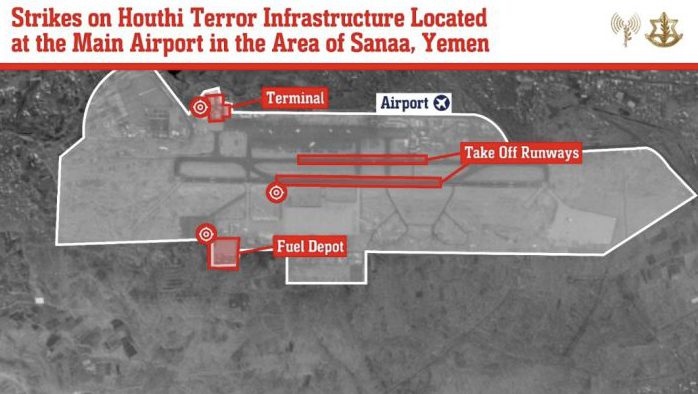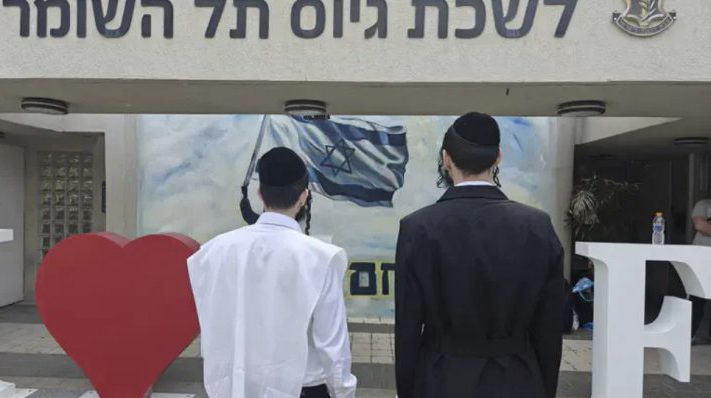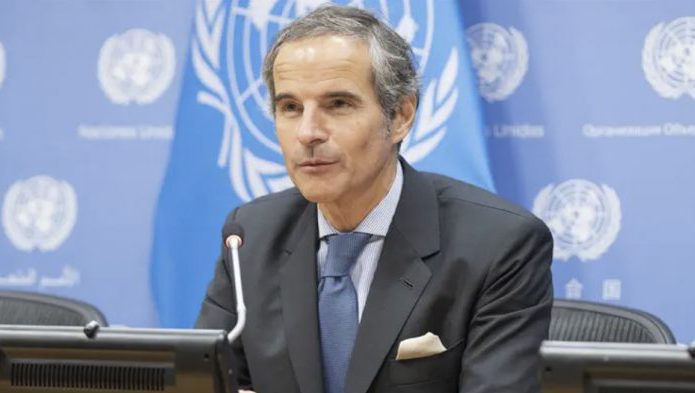In a rare interview with Arutz Sheva, IAF pilot Maj. A. shares the tension, risks, and precision behind the long-range strike on Houthi military targets in Yemen.
The Israeli Air Force conducted two attacks within two days of each other this week, thousands of miles from its borders – in Yemen.
Behind the operation, which targeted infrastructure belonging to the Houthi terrorist rebels, are the pilots of the IAF, who, beyond just carrying the weight of the dangerous mission, know that the entire world is watching.
In a rare interview, one of those pilots, Major A., opened the cockpit and sat down with Arutz Sheva-Israel National News to recount the tension, the understanding of the historical significance, and the complex feelings of those who flew so far away to hit the Iranian satellite.
Major A. recounts the moment he received the order: “We will do it very well, and to do it very well, we will work very hard, in short time constraints, to succeed in doing it.”
The pilot explains that the targets were Houthi military infrastructure. “We went to attack, and to get there in time, with all the munitions in order and proper intelligence, there is a lot of work to do in a short amount of time from the moment we receive the order to the strike itself.”
According to Maj. A., the preparations begin a lot before hand: “The preparations don’t happen the moment they say, that’s another 24 hours. The preparations are a lot before that: training with all the squadrons, knowing the advantages of each squadron and each plane, obtaining real-time intelligence and information, to take advantage of the advantages.
Regarding the significant distance from Israel, he says: “It’s a very long attack. A lot of things can go wrong on the way, and you’re much further away from Israel’s borders. Even if something less good happens, it takes time to get to you, to understand it (that it happened). In every strike, we want to be sharpest and the most precise, and to execute the mission. Here it is harder, more challenging.”
Asked if he feels danger, he responds: “There is a feeling of danger, but your head doesn’t go there during the flight, not on the way, and not back. You think about it at some point on the ground, for a very short time. You’re busy executing the mission, seeing that everything is working, that this whole ‘orchestra’ is working together, and that in the end, my plane executes the mission, and I will be in the right place.”
Maj. A. explains that the distance and time the mission took also sends a message: “One of the reasons we have such little time from the moment they hit us to the moment we hit them. Both the targets at the end and the way it is done are connected to sending a message.”
The pilot also discusses the early warning given to evacuate the Sana’a Airport before the strike. “We don’t hit who we don’t need to hit. We are very careful with this, even though it makes the missions more dangerous. But we don’t hit who we don’t need to hit – and therefore, we do it.”
To conclude the interview, Maj. A. is asked what he wants the readers to know about the IAF’s operations. “We do everything the best we can. People, be it reservists, active duty, or carrier officers, give their all, and are away from home so they can meet the tasks. The responsibility is clear to us. Every successful mission – we understand it advances us to the final goal, which is returning the hostages and restoring peace for the citizens.”The pilot also discusses the early warning given to evacuate the Sana’a Airport before the strike. “We don’t hit who we don’t need to hit. We are very careful with this, even though it makes the missions more dangerous. But we don’t hit who we don’t need to hit – and therefore, we do it.”
To conclude the interview, Maj. A. is asked what he wants the readers to know about the IAF’s operations. “We do everything the best we can. People, be it reservists, active duty, or carrier officers, give their all, and are away from home so they can meet the tasks. The responsibility is clear to us. Every successful mission – we understand it advances us to the final goal, which is returning the hostages and restoring peace for the citizens.”





